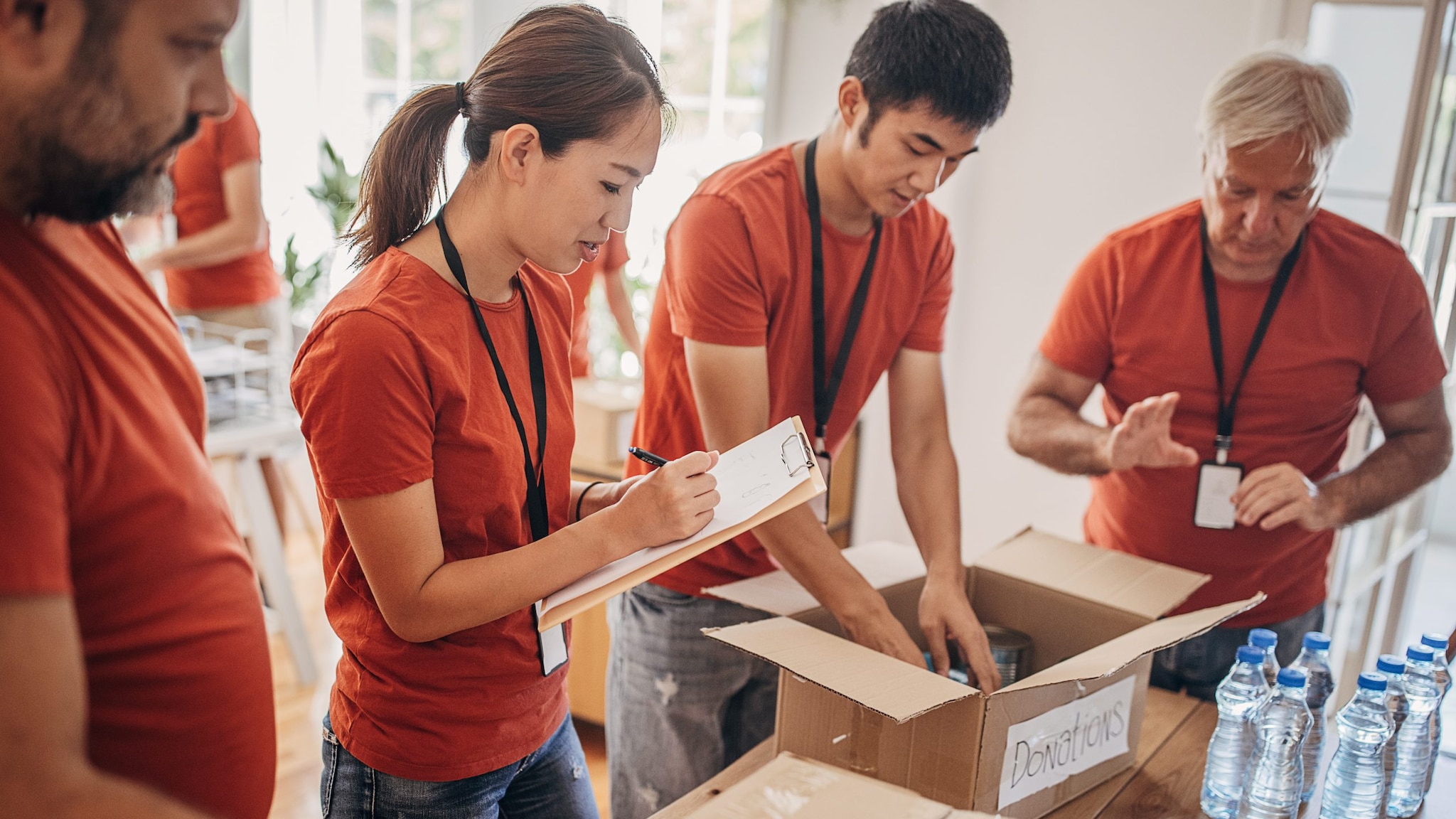At a glance
People may want to help during a disaster by donating formula, food, and other supplies for infants and young children. Learn more about what to donate and not donate.

Do not donate infant formula
Do not donate infant formula during natural disasters or other emergencies. Only official relief organizations should provide and manage emergency supplies of infant formula.
Relief organizations can give ready-to-feed (RTF) infant formula to families that need it.
If the disaster is so severe that federal assistance is needed, there will be a Disaster Declaration. Then, the U.S. Department of Agriculture's Food and Nutrition Service (FNS) or the Federal Emergency Management Agency (FEMA) may provide infant formula. Their support will be requested by the affected state, territory, or tribe for people in shelters.
What if there is an infant formula shortage in stores?
Some stores will have infant formula shortages during a disaster due to families overstocking supplies. To help prevent shortages, do not buy infant formula to donate. Relief organizations are responsible for managing the process of getting infant formula to families in need. They must make sure it is stored at a safe temperature and includes the information and supplies that families need to feed their babies safely.
How can infant formula donations be harmful?
Infant formula is sometimes distributed without assessing who needs it and without providing feeding supplies or education about safe preparation and storage.
Families who have not used formula before might dilute or water it down to make it last longer. This is dangerous and reduces the amount of nutrients the baby will receive at each feeding. The child might become malnourished.
Infant formula distribution to all families with infants can send an inaccurate message to breastfeeding women that their milk is not enough.
When breastfeeding women start using infant formula during an emergency, they might breastfeed less. This can reduce their milk supply.
When families recover from the crisis, they may be unable to afford continued use of infant formula.
Did you know?
Donating infant and toddler feeding items
It may be possible to donate infant and toddler feeding items, such as bottles, pacifiers, and sippy cups. Cleaning reusable infant and toddler feeding items requires safe water and soap after each use. When these supplies are unavailable, families should use disposable cups to feed infants and children expressed breast milk, formula, or other liquids. Check with local relief organizations for a list of needed supplies.
Do not donate breast pumps
Do not donate breast pumps. Mothers cannot use an electric breast pump or safely refrigerate their expressed milk without power. Keeping pump parts clean is an additional challenge, even for battery-operated or manual pumps.
Bacteria can grow when pump kit parts are not thoroughly cleaned after each use. This bacteria growth can contaminate expressed milk and make a baby sick. Families that need to pump milk can be safely supported and taught to hand express, so that a breast pump is not needed.
Donating breast milk
Human milk can be donated to milk banks at any time. Milk banks that are members of the Human Milk Banking Association of North America (HMBANA) are nonprofit operations that provide pasteurized donor human milk to fragile infants in need. Review the list of milk banks and call the closest one. It does not need to be in your state. Milk bank staff will guide you through the screening and donation process. Milk banks cover the cost of screening donors and shipping, and many have drop-off sites.
Donating milk is a time-consuming commitment. The process requires screening and multiple donations are often needed to provide a minimum amount of milk.
You do not need to wait for an emergency to donate your breast milk. Consider becoming a donor at any time to help milk banks be prepared for future emergencies.
How to help with recovery efforts
Connect with official emergency relief organizations working in the affected area to determine what is needed and how to help. Do not start collecting and shipping items unless you know a specific organization will accept your items. Relief organizations may prefer financial donations.
Perishable items require refrigeration, which may not be available to families without electricity. Unneeded donations often go to waste, making post-disaster clean-up efforts more difficult.
